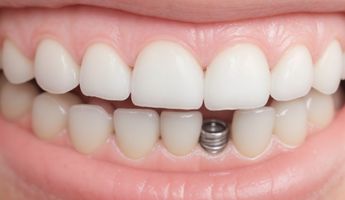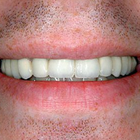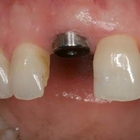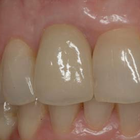Dental Implant in Berlin
Search and Compare the Best Clinics and Doctors at the Lowest Prices for Dental Implant in Berlin

Find the best clinics for Dental Implant in Berlin
With Medijump you can browse 5 facilities offering Dental Implant procedures in Berlin. The cheapest price available is $1,906 in Cologne. And for the cheapest price globally, prices start from $1 in Vietnam.
Dental Implant in Germany
Price: $ 1,906
Dental Implant in Cologne
Price: $ 1,906
Vietnam offers the best prices Worldwide
Price: $ 1
From 18 verified reviews
Alexandra Melendez, 14 August 2020
Dr. Dammert is a very sensitive and good dentist. I've been a scared patient since childhood and he knew exactly what to do. He took enough time to explain every step - and he was always responsive to me. The practice looks very classy and modern. The team around Dr. Dammert is very nice and extremely welcoming. You feel instantly at ease, just like when you visit reluctant dentists - this particular practice gives you - not necessarily the feeling of being at the doctor: the team is dressed in noble dark tones and the classic doctor flair has been blown away. I can this practice and the work of Dr. Dammert warmly recommend. It was a very good experience and I like to remain a patient here. Who knows, soon the addition "fear" patient is missing. Thanks to the team and Dr. Dammert.
From 3 verified reviews
Serap Karateke, 02 March 2019
I am a fear patient and have been in some dental offices. Until I came across this practice. The dental assistants are all very nice, but especially I am pleased that I have found the perfect dentist, Dr. med. Conzanze Gonzalez. She is a sensitive doctor, always eager to do her job 100% and a person who loves her job.
From 47 verified reviews
Hans-Joachim Kleine, 10 September 2020
After 8 years, I can state that it was worthwhile to have a basic renovation with implants that lasted several months. Since then I have been free of complaints and have got a completely new attitude towards life. I can get treatment from Dr. Highly recommend Markus Nowak and the team. Even if it involves a financial contribution of your own, this investment in your own health pays off and pays off in any case. Good job! And once again at this point: Warmest thanks and all the best!
From 12 verified reviews
Victoria Donke, 13 June 2020
Best doctor! Extremely competent and human at the same time!
Praxis Fürth-City, located in Bismarckstrasse, Berlin, Germany offers patients Dental Implant procedures among its total of 38 available procedures, across 4 different specialties. Currently, there's no pricing information for Dental Implant procedures at Praxis Fürth-City, as all prices are available on request only, whilst the national average price is approximately $1,906. There are many specialists available at the Hospital, with 4 in total, and they are not accredited by any recognized accreditations institutes
Compare Before & After Photos of _procedure_photos.phpDental Implant


Front view


Front view


Front view


Front view


Front view
WHY US?
At Medijump, we're making medical easy. You can search, compare, discuss, and book your medical all in one place. We open the door to the best medical providers worldwide, saving you time and energy along the way, and it's all for FREE, no hidden fees, and no price markups guaranteed. So what are you waiting for?

Free

Best Price

Widest Selection

Risk-Free
What you need to know about Dental Implant in Berlin

A dental implant is a medical device that provide support to artificial teeth. It's surgically placed into the jaw to act as a replacement for the root of a missing or damaged tooth, which in turn serves to hold a replacement tooth or bridge. It functions and looks much like a real tooth, restoring your ability to chew and improves your overall appearance. Dental implant surgery is considered as a better alternative to dentures or bridgework that does not fit well. It also offers a great option for people when they do not have enough natural teeth roots left to build denture or bridgework replacements.
Since dental implants eventually fuse with your jawbone over the span of several months, it won’t make noise, slip, or cause bone damage the way dentures or bridgework might. Dental implants also enable natural speech, look and feel like your own teeth, make eating easier, and improves your appearance. However, the surgery may involve several stages, and, in some cases, it may require two separate visits to the clinic to complete. Ensure to look for a specialist in a reputable clinic for the best results.
What is the cost of Dental Implant in Berlin?
Price differences abound in Berlin for Dental Implant based on the clinic, the proficiency of the surgeon, and the individual requirements of the patients. It's essential to realize that dental insurance usually doesn't cover the entire bill for this treatment, though it might cover a part. Several dental clinics provide finance schemes or payment alternatives to assist in easing the financial burden. For more precise cost estimates, reach out to your dental service provider or a nearby clinic.
What does a Dental Implant Procedure Involve?
Dental implant surgery generally requires several stages. Each stage may be performed under general or local anesthetic. The first stage is removing the damaged tooth. Then, if your jawbone is too soft or not thick enough, your dentist may perform bone grafting to create a more solid base for the implant. The bone graft may be natural (taken from another part of your body) or synthetic (a bone-substitute material). If you only need minor bone grafting, the implant surgery can be performed on the same day. However, if you need a significant amount of bone graft, the implant surgery may have to be postponed until the transplanted bone grows enough new bone to support the dental implant.
The next stage after the damaged tooth removal and bone graft (if you need one) is placing the dental implant. To do this, your dentist makes an incision to expose the bone and puts the metal implant post deep into the bone. At this stage, you will still have a gap where your tooth is missing. Your dentist will place a temporary denture for appearance. Once the metal implant post is placed, osseointegration begins. This is a process where the jawbone grows into the surface of the implant and can take several months to complete. After osseointegration is complete, your dentist will place the abutment, which is a small connector post that will hold your new tooth. The final stage, after the abutment is placed, is placing the crown, which is the tooth-looking part. You can choose between a removable crown and a fixed crown.
How Long Should I Stay in Berlin for a Dental Implant Procedure?
The length of your stay in Berlin for a Dental Implant depends on numerous considerations like the intricacies of the procedure, the quantity of implants required, and your personal recovery process. Each stage of dental implant surgery is done in separate appointments. After each appointment, you should be able to leave the hospital or clinic right away. However, you should stay in Berlin for at least 2 weeks for completion of the work, the initial recovery time, and follow-up checkups.
What's the Recovery Time for Dental Implant Procedures?
The recuperation duration following a Dental Implant or dental implant operation can widely vary and is shaped by multiple aspects. Initial healing of the tissue might require only a handful of days, but complete osseointegration (the fusion of the implant with the jawbone) generally spans several months. This window could be extended for patients requiring auxiliary procedures such as bone grafts, or those with prevailing health issues that may impede the healing process.
Post-procedure, it's not unusual to experience a degree of discomfort, which could manifest as minor pain, swelling of your gums and face, skin and gum bruising, and slight bleeding. Such symptoms are a standard phase of the recovery process and should alleviate within a fortnight. In this interim, it's advisable to stick to a soft diet to not overload the implant site with undue pressure. Any strenuous physical exertion should be put off to circumvent potential complications.
Maintaining excellent oral hygiene is paramount to facilitate healing and stave off infection. Regular brushing and flossing, being particularly gentle around the surgical area, coupled with rinsing your oral cavity with warm saline water, can contribute to keeping the region hygienic.
What sort of Aftercare is Required for Dental Implant Procedures?
After each stage of surgery, you may have to eat soft foods. Since you may experience swelling, bruising, pain, and minor bleeding, your dentist will prescribe pain medications or antibiotics to help ease your discomfort. During your recovery period, you need to avoid smoking as it can contribute to implant failure and complications.
No special care is required for dental implants. Nonetheless, you need to practice good oral hygiene in order to maintain the implant and your remaining natural teeth. Make sure to brush your teeth twice a day, floss daily, and rinse your mouth with an antiseptic mouthwash. You also need to see your dentist regularly and avoid damaging habits, such as chewing hard items.
What's the Success Rate of Dental Implant Procedures?
The efficacy of Dental Implant, alternatively referred to as dental implants, in Berlin, is typically impressive, boasting effectiveness percentages as high as 98% in some studies. This positions dental implants as one of the most reliable procedures within dental care's realm. Nevertheless, it's worth mentioning that the success rates might fluctuate, influenced by several factors.
The patient's overall health is a key determinant of the thriving outcome of a dental implant procedure. Individuals exhibiting optimal health usually witness higher success rates. Pre-existing health issues like diabetes, osteoporosis, and periodontal ailments can theoretically impact the efficacy of the implant.
Additional contributing factors to the success rate encompass the quality and abundance of the individual's bone structure. Patients boasting plentiful, healthy bone are ordinarily the perfect candidates for dental implants. However, those who have experienced bone loss might need to undergo a bone grafting procedure before the implant procedure. This step can provide a robust base for the implant and enhance the chances of a successful result.
Are there Alternatives to Dental Implant Procedures?
If you are not a candidate for dental implant surgery, or you simply do not want to undergo the procedure, you can opt for the alternatives. The alternatives include:
- Mini dental implants, which is a small type of dental implants. The structure is similar to regular dental implants, but are somewhat smaller in size. Unlike regular dental implants, dentists can often place mini implants only in one visit using local anesthesia. You may also be able to use your new teeth on the same day.
- A same-day implant is essentially similar to traditional dental implants. However, your dentist performs the whole process in just one day, skipping the process of wound healing and osseointegration.
- Implant-supported dentures or All-on-4 is an alternative if you need to fix a complete upper or lower set of teeth. During this procedure, four to six implants are placed into your jawbone as a base to attach and stabilize your denture.
What Should You Expect Before and After the Dental Implant Procedure?
Grasping what lies ahead before and post the Dental Implant can lessen potential worries and guarantee you are fully equipped for the upcoming journey. Prior to the procedure, your dental practitioner will conduct an all-inclusive dental assessment. This check-up may encompass dental X-rays and sophisticated 3D imaging to examine the status of your oral cavity.
The dental professional will also explore your medical history. If you're suffering from specific heart disorders or orthopedic implants, your dental practitioner might suggest antibiotics to avert infection. A personalized treatment blueprint, customized to your circumstances, will be constructed. This strategy takes into account factors like the amount of teeth you need substituted and the state of your jawbone. The procedure is typically carried out under local anesthesia to mitigate any discomfort.
Subsequent to the operation, experiencing slight unease is usual. You might witness inflammation of your face and gums, discoloration of your skin and gums, soreness at the insertion area, and insignificant bleeding. Your dental specialist will recommend medications to soothe these indicators. In case inflation, unease, or any other complications intensify in the days post-operation, it's crucial to reach out to your oral surgeon. Post-operation will require you to consume mushy foods as the operated site recovers. Moreover, you'll be guided to abstain from smoking, as it can hinder recovery and influence the triumph of the dental implant.
Following the positioning of the implant, the healing process, and fusion with the bone (osseointegration) transpire over an extended period. During this interval, maintaining robust oral cleanliness is vital. This involves frequent brushing, the use of dental floss, and cleansing with an antibacterial mouthwash. Periodic dental examinations are obligatory to track progress and confirm the well-being and effectiveness of the implant.
What are Potential Risks of Dental Implant?
Despite Dental Implant boasting remarkable effectiveness, it is, as any surgical operation, not without risks and potential difficulties. The chances of encountering these issues are often minute and irregularities are infrequent, yet it remains critical for patients to comprehend these possibilities before undertaking the procedure.
Complications and side effects may include:
- Implant failure
- Nerve injury
- Infection
- Sinus problems
- Damage to surrounding structures, such as other teeth or blood vessels
How long does a Dental Implant last?
The durability of a Dental Implant is heavily reliant on the individual's oral cleanliness and general wellbeing. Nonetheless, with appropriate upkeep and care, dental implants have the potential to stand the test of time. The titanium pillar inserted into the jawbone during surgery is crafted to be everlasting, while the dental cap fastened to the anchor may necessitate substitution every decade or decade and a half due to normal usage. Yet, with outstanding dental management and habitual screenings, the cap has the potential for lifelong endurance.
Whilst the information presented here has been accurately sourced and verified by a medical professional for its accuracy, it is still advised to consult with your doctor before pursuing a medical treatment at one of the listed medical providers
No Time?
Tell us what you're looking for and we'll reachout to the top clinics all at once
Enquire Now

Popular Procedures in Berlin
Prices Start From $1

Prices Start From $1

Prices Start From $48

Prices Start From $1

Prices Start From $1

Prices Start From $11

Prices Start From $1

Prices Start From $45

Recommended Medical Centers in Berlin for Dental Implant

- Interpreter services
- Translation service
- Religious facilities
- Medical records transfer
- Medical travel insurance
- Health insurance coordination
- TV in the room
- Safe in the room
- Phone in the room
- Private rooms for patients available

- Interpreter services
- Translation service
- Religious facilities
- Medical records transfer
- Medical travel insurance
- Health insurance coordination
- TV in the room
- Safe in the room
- Phone in the room
- Private rooms for patients available

- Interpreter services
- Translation service
- Religious facilities
- Medical records transfer
- Medical travel insurance
- Health insurance coordination
- TV in the room
- Safe in the room
- Phone in the room
- Private rooms for patients available

- Interpreter services
- Translation service
- Religious facilities
- Medical records transfer
- Medical travel insurance
- Health insurance coordination
- TV in the room
- Safe in the room
- Phone in the room
- Private rooms for patients available

- Interpreter services
- Translation service
- Religious facilities
- Medical records transfer
- Medical travel insurance
- Health insurance coordination
- TV in the room
- Safe in the room
- Phone in the room
- Private rooms for patients available

- Interpreter services
- Translation service
- Religious facilities
- Medical records transfer
- Medical travel insurance
- Health insurance coordination
- TV in the room
- Safe in the room
- Phone in the room
- Private rooms for patients available

- Interpreter services
- Translation service
- Religious facilities
- Medical records transfer
- Medical travel insurance
- Health insurance coordination
- TV in the room
- Safe in the room
- Phone in the room
- Private rooms for patients available
Dental Implant in and around Berlin
About Berlin
Berlin is the capital and the largest city of Germany and with over 3.7 million inhabitants; it is the second-most populous city of the European Union after London. It is an alpha city of culture, politics, media, and science. The metropolitan city is also a popular tourist destination, thanks to its rich history, vibrant culture, lively parties, delightful food, and incredible architecture.
Today, Berlin is one of the most popular destinations for medical tourism. The number of medical tourists coming to the city increases each year. Most of them travel from Poland, the Netherlands, France, and the Middle East. Some of the more popular treatments are oncology, cardiology, dentistry, and even tummy tuck. Although the cost is considerably higher than the neighboring countries such as Hungary, medical tourists still come for high-quality treatment with cutting-edge technology. Thousands of medical tourists prefer Berlin for the following reason:
- A patient-focused health-care system with a wide range of treatment.
- Qualified doctors, surgeons, nurses, and other medical practitioners.
- Hospitals equipped with modern technology.
- Higher quality treatments, care, and services.
- Attractive destination and environment, perfect for rejuvenating and recovery.
Popular Areas in Berlin
As a famous tourist destination, Berlin has numerous attractions to see and many things to do. Whether you want to indulge in its culture, eat its food, or have a non-stop party, there will always be something for you.
- Museum Island (Museumsinsel) is a UNESCO World Heritage Site. It is a unique group of five world-renowned museums and it is the perfect place for those who love history and culture. From Ancient Egyptians, Roman Antiquity, the civilizations of the ancient Greek, Christian, and Islamic arts, to 19th Century European Art is available to see in the museums.
- Brandenburg Gate is Berlin’s most famous landmark. This 18th-century neoclassical monument used to symbolize divided Germany during the cold war since the Berlin Wall shut off access to the gate for both East and West Germans. Now, it has turned into a symbol of unity.
- Berlin Wall Memorial is located in the middle of the city where East and West were once divided. The memorial extends along 1.4 kilometers of the former border strip and contains the last piece of the Berlin Wall. The historical remnants and traces of borders are preserved on display so visitors can see and learn more about the history behind it.
- Berlin Cathedral (Berliner Dom) is the biggest church building in Berlin. The architecture and interior will leave visitors in awe. The architect, Julius Raschdorff, used the style of the Italian High Renaissance and Baroque elements. The interior is magnificent with marble columns and golden ornaments in abundance.
- Glass Dome of the Reichstag is an architectural masterpiece constructed on top of the rebuilt Reichstag building. The rooftop terrace and dome offer an outstanding view of the parliamentary and government district as well as Berlin’s skyline. There is also a restaurant on the rooftop.
Weather and Climate in Berlin
Just like the rest of Germany, Berlin enjoys four distinct seasons, making it a year-round destination for tourists. Spring starts around March and ends in May. This season is characterized by the arrival of cherry blossoms and the increase of the temperature. The temperature is around 4.3 °C in early March and will get as warm as 19.4 °C in May.
Summer runs from June to August with an average temperature of 24 °C but can get as high as 30 °C in the hottest days. This season is the peak of tourism because people can enjoy outdoor activities, so prices can be a lot higher than usual.
The months of September and November are Autumn. The weather in this season is similar to summer, which is warm and pleasant. However, the temperature can drop significantly in late November. Tourists usually visit the city during autumn for the Oktoberfest.
Winter in the city can be freezing, cloudy, and wet. The temperature can plummet to -10 °C on the coldest days. The city is generally very festive during this season, thanks to the Christmas spirit.
Getting Around in Berlin
Berlin has two main airports: Berlin Tegel Airport and Berlin Schönefeld Airport. The main international airport is the Berlin Tegel Airport located in the northwest. The airport serves domestic flights to other cities in Germany and international flights to almost every major city around the globe. Berlin Schönefeld Airport is the secondary airport that mainly serves budget airlines such as EasyJet and Ryanair. It is also an international airport that operates domestic and international flights. To get to the city center from both airport, bus, train, taxi or car are available.
To get around Berlin, there are various transportation modes to choose from. The main means of transport in the capital is the U-Bahn system, which comprises 9 metro lines and 173 stations. During peak hours, trains run every two to five minutes and every ten minutes in the evening and on Sundays. Along with the U-Bahn, the S-Bahn system is also one of the main means of transport. It has 15 lines serving 166 stations and has a longer average distance between station than the U-Bahn.
Tourists can also ride the tram and the tram lines mostly operate in the eastern neighborhoods since the tram lines in the former West Berlin were replaced by bus and U-Bahn. The tram lines operate 24 hours a day in some areas.
The bus in Berlin has around 151 lines running every 10 minutes for 24 hours. The buses also replace metro trains during closing hours. Taxis can be found easily enough around the city, with more than 7,000 taxicabs. The taxis can be identified by the beige or ivory color. The base fare is 3.90 EUR and tourists can hail the taxis from the street, by phone, or via an app. Other transportation such as Ferry, car sharing, and e-scooter is also available.
Tourist Visas in Berlin
The citizens of Australia, Canada, Israel, Japan, New Zealand, Poland, the United States, and Switzerland can enter and stay in Berlin for up to 90 days. Since Germany is a member of the European Union, citizens from other European Union countries do not need to obtain a visa to enter. Citizens of other countries need a Schengen Visa. It is advisable to always check the requirements for Germany Visa Application before applying.
Additional Information
- Local Currency: The official currency is the euro (EUR). 1 USD is equivalent to 0.81 EUR.
- Money & Payments: Tourists can find ATMs almost everywhere within the city. Although credit card acceptance is growing, remember that cash is king in the city. Therefore, it is best to always carry some cash. Note that it is considered rude to leave a tip on the table. You should tell the server the total amount you want to pay. For a good restaurant service, a 10% tip is acceptable. For taxis, tourists can tip 10%, rounding to a full euro.
- Local Language: German is the official language. Most people in the city will speak English, in hotels, restaurants, and shops.
- Local Culture and Religion: Over 60% of Berlin’s population has no religious affiliation, while 30% identified as Christian.
- Public Holidays: As most of German, Berlin celebrates major Christian religious holidays such as Easter and Christmas.
Popular Searches
- Plastic Surgery in Thailand
- Dental Implants in Thailand
- Hair Transplant in Thailand
- Breast Augmentation Thailand
- Gastric Sleeve in Thailand
- Gender Reassignment Surgery in Thailand
- Laser Hair Removal in Bangkok
- Botox in Bangkok
- Dermatology in Bangkok
- Breast Augmentation in Bangkok
- Coolsculpting in Bangkok
- Veneers in Turkey
- Hair Transplant in Turkey
- Rhinoplasty in Turkey
- Stem Cell Therapy in Mexico
- Rhinoplasty in Mexico
- Liposuction in Mexico
- Coolsculpting in Tijuana
- Rhinoplasty in Korea
- Scar Removal in Korea
- Gastric Sleeve in Turkey
- Bone Marrow Transplant in India
- Invisalign in Malaysia
- Plastic Surgery in the Dominican Republic
- Tummy Tuck in the Dominican Republic
- Plastic and Cosmetic Surgery in Poland
- Rhinoplasty in Poland
- Hair Implant in Poland
- Dental Implants in Poland
- IVF in Turkey




